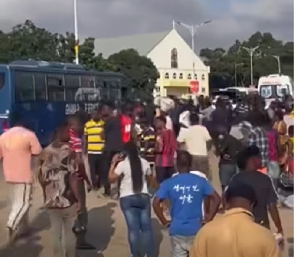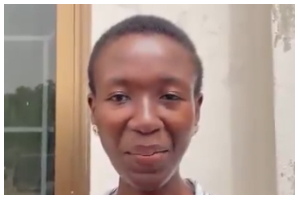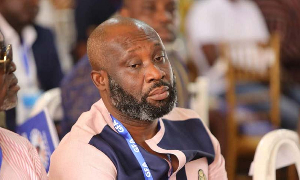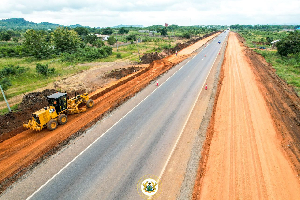The Constitution of Ghana guarantees the right of individuals to free assembly including the freedom to take part in processions and demonstrations. The right to freedom of assembly is one of the foundations of a functioning democracy. 1 The right to freedom of assembly, coupled with the right to association and the right to freedom of expression are essential for the exercise of many other rights.
These rights cannot be curtailed by the government or any other individual,
except under another law either provided in the Constitution or any other law of the land. Participation in peaceful assemblies ensures that people have the opportunity to express their opinions in community with others. 3 This right offers an opportunity for the general public to discuss issues of national importance and openly voice their opposition.
It often serves as a tool against tyranny and to influence decision-making in the country. This paper seeks to discuss the laws of Ghana on the right to assembly and public protest taking into account what transpired during the “OccupyJulorbiHouse” protest. In doing so, I will consider the following:
The events leading to the protest;
Laws on the right to assembly and protest in Ghana;
Whether the protestors have rights under Ghanaian laws;
Whether any remedy will accrue to the protestors; and
Conclusion
The events leading to the protest:
The “OccupyJulorbiHouse” protest was a three-day peaceful protest that came off on September 21, 2023. The purpose of the protest was to express grievances regarding the economic mismanagement by the incumbent government, corruption scandals, and ineffective healthcare system in Ghana among others. What was supposed to be a peaceful protest was however disrupted by policemen who arrested the protestors and some bystanders as well as used excessive force in an attempt to quell the protestors.
There were reports of people beaten up and phones seized. Journalists on the grounds were also arrested and manhandled by the police. The police on the other hand through its communique stated that it had filed an injunction application
yet to be heard by the court and had served the same on the organizers of the protest as such, the protest amounted to an unlawful assembly.
Laws on the Right to Assembly and Protest in Ghana:
The 1992 Constitution of Ghana guarantees the rights of all persons in Ghana. These rights cannot be derogated from nor can anyone deprive another of his or her rights. The rights under the Constitution are however not absolute because they are subject to the respect for the rights and freedoms of others as well as the interest of the public. Thus, Article 12(2) of the Constitution, 1992 provides that: “Every person in Ghana, whatever his race, place of origin, political opinion, colour, religion, creed or gender shall be entitled to the fundamental human rights and freedoms of the individual contained in this Chapter but subject to respect for the rights and freedoms of others and the public interest”.
The court speaking through Justice Bamford-Addo succinctly held in the case of New Patriotic Party versus Inspector-General of Police that: “…human rights are inalienable being the birthright of the individual as a human being, they cannot be derogated from nor can anyone deprive one of his or her human rights. Therefore, these rights are to be enjoyed freely without any impediments or preconditions, but in the enjoyment of these rights, regard must be had for the
rights of others and for the public interest”.
The right to freedom of assembly including the freedom to take part in processions and demonstrations is guaranteed under Article 21(1)(d). Like all other rights, the right to freedom of assembly is not absolute. Any restrictions put in place must however adhere to the principle of legality, have a justifiable public objective, and use necessary and appropriate methods to accomplish that goal in a democratic society.
Therefore, the law must proportionately outweigh the full enjoyment of the right and justify the legitimate aim it serves. Any restriction on the right to freedom of assembly must therefore be enshrined in a law to prevent arbitrary restrictions. Not all restrictions are however acceptable. The restrictions permitted must be those that are necessary for the “national security or public safety, the prevention of disorder or crime, the protection of health or morals, or the protection of others' rights and freedoms.”
The mere allegation of any of the grounds per se will not in itself operate
to limit the right to freedom of assembly as enshrined under the Constitution, 1992. Any such allegation must be duly substantiated and proved. The Public Order Act 6 of Ghana regulates public order and other related matters. Act 491 lays down procedures to be followed in the exercise of the right to freedom of assembly.
The Act does not require prior police authorization as a condition for public assembly or celebration. It instead requires organizers to notify the police of the assembly at least five days before the event. The police may request (in writing) that the organizers postpone or move the gathering if the officer believes it is likely to cause violence or harm public safety or the rights of others.
However, the organizers are not required to comply with the police officer's request and must notify the police within 48 hours of the request of their willingness or inability to comply with the request.
If the organizers refuse to comply with the officer's request, the legislation lays the onus on the police to obtain an injunction from a court of competent jurisdiction to stop the assembly. To prohibit the assembly, the Court must demonstrate that the order is reasonably necessary in the interest of public safety, public health, or the preservation of others' rights. The Act also compels police officers to take all reasonable actions to support the exercise of the right to freedom of assembly, such as directing routes and vehicle traffic to enable orderly enjoyment of the right.
There is always a conflict between the right of individuals to exercise their right to free assembly and the responsibility of the police to protect the public interest, particularly public security and order. The court therefore seeks to reach a balance between these conflicting interests by protecting the right to assembly whilst noting that reasonable limitations may be placed on the
right. This is evident in the celebrated case of New Patriotic Party v Inspector-General of Police supra, where the court in protecting the right to assembly was careful not to issue orders that would render the police powerless to ensure public safety or the protection of the right of others.
The court therefore held that: “…in the enjoyment of these rights, regard must be had for the rights of others and the public interest. The public interest demands that the police maintain law and order in society. Therefore, the police will continue to maintain law and order and to ensure that there are no infringements of the criminal laws of the land by those exercising their rights.”
It should be noted that this does not give any power to the police or anyone else to forbid the holding of any meeting, procession or demonstration. It is noteworthy that the police continue to have the authority to protect public order and peace. The proviso, however, is that, for the police to interfere with the right to assemble, they must offer acceptable justification that reasonable grounds exist for exercising such powers. Where the police resort to force to ensure public order and security, the force in question must be necessary for a legitimate law enforcement purpose and proportionate to that purpose.
Thus, Section 37 of the Criminal and Other Offences Act 7 provides that for the prevention of, or for the defence of himself or any other person against any crime, or the suppression or dispersion of a riotous or unlawful
assembly, a person may justify any force or harm which is reasonably necessary extending in case of extreme necessity, even to killing.
Whether the protesters have rights under Ghanaian laws:
From the laws of Ghana on the right to assembly discussed above, it is evident that the “OccupyJulorbiHouse” protestors have a guaranteed right under the Constitution to protest under Article 21(1)(d). Because freedom of assembly is a right and not a privilege, individuals seeking to exercise the right to assemble do not require state authorization in the form of requesting permission to do so, as permission requirements impede the enjoyment of the right. They were
therefore only required to notify the police and adhere to the other requirements under Act 491.
As already stated, the right to freedom of assembly is not absolute. This right can be curtailed under certain circumstances. In the enjoyment of the right, regard must be had for the rights of others and the public interest. The police must maintain law and order in Ghana thereby protecting the public interest. However, the police can only interfere
with the right to assemble, after offering acceptable justification that reasonable grounds exist for exercising such powers.
The only justification by the police was that an injunction application had been filed which application was yet to be heard by the court and had served the same on the organizers of the protest as such, the protest amounted to an unlawful assembly. Indeed, Act 491 mandates the police to obtain an injunction from a court of competent jurisdiction to stop the assembly where the organizers refuse to comply with the officer's request, however, where the court is yet to hear the matter and decide, it is for the court to find them contemptuous and punish accordingly and not for the police to constitute themselves as the court and punish same.
The conduct of the police in arresting, using excessive force and manhandling the protestors who were exercising their Constitutionally mandated rights was therefore an infringement on the right to assembly. It is a well-established principle of law that any conduct which tends to bring the authority and administration of the law into disrespect or to interfere with any pending litigation is a contempt of court.
It is immaterial that the application for the injunction by the police is yet
to be heard by the court. It is therefore not tenable to argue that because the application is yet to be heard by the court, the organizers of the “OccupyJulorbiHouse” protest are not in contempt of court. So far as the application was pending before the court for hearing and determination, it was the duty of the organizers of the protest to appear before the court and put forward their reasons why the application should not be granted.
The court in the case of Republic v. Moffat and others; Ex Parte Allotey 9 therefore held that: “I would be laying down a very dangerous precedent if I were to hold that a party, when served with an application for an order of prohibition from the High Court, can disregard or ignore the said application and treat the court with contempt if he believes that the said application is misconceived.”
So once the organizers of the “OccupyJulorbiHouse” protest had become aware of the pendency of the application before the High Court, and which application gave them notice in clear terms of the court's intention to inquire into the matter and to decide whether or not they should be prohibited from embarking on the protest, any conduct on their part which was likely to prejudice a fair hearing of the motion or was likely to interfere with the due administration of
justice would amount to a contempt of court.
The police therefore conducted themselves wrongly by enforcing an injunction not granted by the court and the “OccupyJulorbiHouse” protestors also conducted themselves wrongly by embarking on the protest when they were served with the application for injunction.
In any event, if the conduct of the police was to protect public order, security and peace, the amount of force used in achieving this goal was not one required by law having regard to the fact that it was a peaceful assembly devoid of the use of force, threatened use of force or incitement of people to use force. The force used should have been necessary for a legitimate law enforcement purpose and proportionate to that purpose.
Whether any remedy will accrue to the protestors:
Having established that the “OccupyJulorbiHouse” protestors have rights under the laws of Ghana, where under the circumstance such right has been infringed upon, they may institute an action under Article 33 of the Constitution to prohibit the police from repeating such conducts or under Article 2 and Article 130 of the Constitution for a declaration that the conduct of the police
was inconsistent with their rights as guaranteed under Article 21(1)(d).
Protestors may also bring an action for unlawful arrest and false imprisonment and may obtain compensation in the form of damages upon satisfactorily proving to the court the elements of these torts.
Conclusion:
This essay sought to discuss the laws of Ghana on the right to freedom of assembly and public protest taking into account the “OccupyJulorbiHouse” protest whilst highlighting the possible legal actions and remedies available to the injured parties.
Opinions of Tuesday, 26 September 2023
Columnist: Michael Ansah















